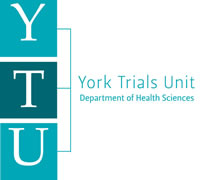Surgery Versus Conservative OsteOarthritis of Thumb Trial (SCOOTT):
An RCT to determine clinical and cost effectiveness of treating arthritis of the base of the thumb, with or without surgery and to determine the clinical and cost effectiveness of trapeziectomy versus base of thumb joint replacement.
Background:
Basal thumb osteoarthritis (BTOA) is common and causes significant morbidity. Symptoms include thumb pain, tenderness and stiffness, which negatively impact activities of daily living and quality of life. A variety of non-surgical and surgical treatments are available. However, despite National Institute for Health and Care Excellence (NICE) guidelines advocating a stepped care approach for BTOA, our research suggests only 21-45% of patients referred to secondary care receive any non-surgical management at all, and even that is variable. We co-produced an enhanced package of non-surgical treatment (the ’ENGAGE’ package), which offers patients a programme of personalised, psychologically informed treatments, supported by evidence based educational materials, and delivered by trained hand therapists. Trapeziectomy is currently the established surgical treatment undertaken, but base of thumb carpometacarpal joint replacement (CMCJR) is increasingly offered to patients in the NHS, despite lack of high-quality evidence for currently used treatment options.
The study will answer two important questions for the treatment of adults with osteoarthritis of the thumb:
- Is surgery [Trapeziectomy or Carpometacarpal Joint Replacement (CMCJR)] superior to enhanced non-surgical management?
- Is CMCJR non-inferior to trapeziectomy?
Aims:
The primary aim of the trial is to quantify and draw inferences on observed differences in pain, as measured by the AUSCAN hand pain index between the three treatment groups at 12 months post randomisation.
Secondary aims are to:
- Investigate the comparative cost-effectiveness of the interventions at 12 months.
- Undertake qualitative analysis to investigate patients’ and clinicians’ experiences and the acceptability of the three treatment interventions.
Study Setting:
Up to 20 secondary care NHS sites, offering hand surgery and therapy services representing diverse populations across the UK.
Target Population:
Adults with BTOA who may benefit from surgery according to the treating clinician.
Recruitment Target:
656 consenting patients referred to secondary care who will be randomised on a 3:3:2 basis to receive trapeziectomy, CMCJR or Enhanced Non-Surgical Management (ENGAGE).
Health Technologies Being Assessed:
Enhanced Non-Surgical Treatment (ENGAGE): this is a programme of personalised, psychologically informed conservative treatments, supported by evidence based, online and paper educational materials, and this will be delivered by trained hand therapists.
Trapeziectomy: Performed as per the treating surgeon’s preferred surgical technique, with or without ligament reconstruction, using an anaesthetic technique appropriate for the patient and postoperative rehabilitation as per the surgeon and therapists’ usual practice.
Base of Thumb Carpometacarpal Joint Replacement (CMCJR): Performed as per the treating surgeons’ preferred surgical technique and implant, using an anaesthetic technique appropriate for the patient. The postoperative rehabilitation will be as per the treating surgeon and therapists’ usual practice.
Trial Design
The trial objectives will be addressed using a multi-centre, superiority and non-inferiority three-arm RCT with an internal pilot, economic evaluation and nested qualitative study.
The trial has a total 24-month recruitment period, including an internal pilot phase of 12 months at the start followed by the main recruitment period.
The primary outcome is the patient-reported Australian Canadian Osteoarthritis Hand Index (AUSCAN) at 12-months post-randomisation.
All trial participants will be followed up for eighteen months.
As with many trials of this type, it will not be feasible to blind patients, surgeons, or outcome assessors to the treatment allocation.
If you would like to find out more about this study, please contact the trial team: ytu-scoott-trial@york.ac.uk
Privacy Notice: How we use your research data
Funding
| Funders(s) | NIHR Health Technology Assessment Programme |
|---|---|
| Start Date | January 2024 |
| End Date | June 2028 |






